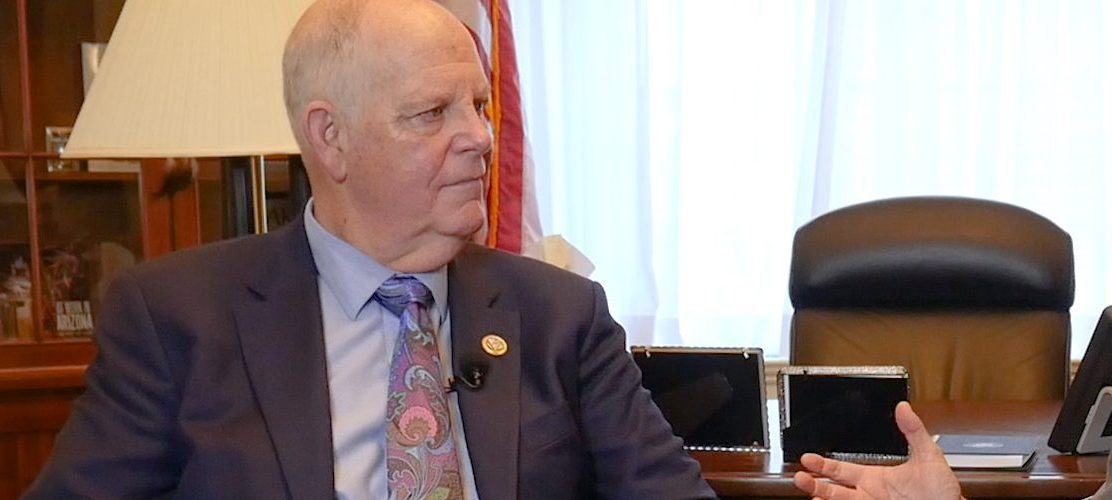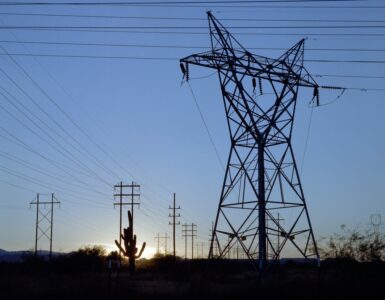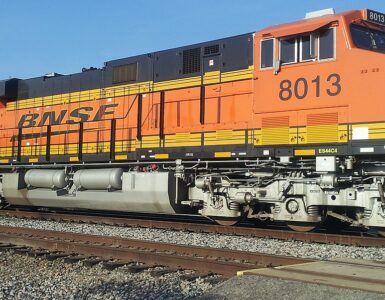Arizona Rep. Tom O’Halleran, who represents Arizona’s largely rural 1st Congressional District, championed the new federal bipartisan infrastructure package as a victory for rural Arizonans in a press call on Thursday.
Joined by state Sen. Jamescita Peshlakai, D-LD7, and state Rep. Jasmine Blackwater-Nygren, D-LD7, the congressman predicted that the bill could reach the House floor within a week.
“Arizona will receive $5 billion” from this new infrastructure package, said O’Halleran. He said that he is committed to ensuring that those funds are distributed fairly and equitably.
Rural broadband investment
Having worked for years on the issue of rural broadband access, O’Halleran seemed relieved that the bill includes investments in broadband.
“We [project] that about 14% [of Arizonans], and I think more, live in areas with no broadband infrastructure,” he said.
The current 2,700-page draft of the bipartisan infrastructure proposal includes at least $100 million in broadband investment for Arizona. The bill also allocates $2 billion across the nation to investment in tribal community broadband access.
“Just as the federal government made a historic effort to provide electricity to every home in America nearly 100 years ago, this infrastructure package will work to ensure every household in Arizona has access to high-speed and reliable internet,” O’Halleran said.
State Rep. Blackwater-Nygren said she is confident that this package could finally answer tribes’ calls for infrastructure investment that Arizona tribal communities have long sought.
Blackwater-Nygren said tribes have been “Asking for adequate infrastructure investment for decades. Not for years, but for decades.”
Tribal lands can often lack cell service, “let alone internet,” said O’Halleran.
“This digital divide is even sharper on tribal lands, which can often lack basic, solid coverage, let alone broadband,” he said. “Only half of the residents who live on tribal lands have fixed home internet service — half. That’s not acceptable.”
Twenty-five percent of CD1’s population is American Indian, with his district encompassing the Navajo Nation, the Hopi reservation, and the Gila River Indian Community.
Climate change
“Monsoons and flash floods have exposed cracks in our infrastructure,” Blackwater-Nygren said, citing an incident several weeks ago in which a tribal member drowned in a flood.
As climate change becomes more severe, O’Halleran believes that investments in infrastructure will become even more critical. He said the country must “address… climate change in the process,” of investing American infrastructure.
Massachusetts Senator Joe Markey, D, an architect of the Green New Deal, claims that the proposed package is “a good start,” but that Democrats will “deal with the climate crisis in the magnitude, scope and scale that’s required” in a follow-up $3.5 trillion infrastructure package.
O’Halleran emphasized climate, as well as other interests.
“We need to make sure we have good-paying jobs to support our families, what’s needed to support our children and their children, and address climate change in the process,” he said. “I commend the president and his leadership and steady hand in helping the deal get across the finish line in a bipartisan way.”
Bipartisan action
The infrastructure package is the product of bipartisan negotiations led by Ohio Republican Sen. Rob Portman and Arizona Democratic Sen. Kyrsten Sinema.
A member of the House Problem Solvers Caucus, which is “an independent member-driven group in Congress, comprised of representatives from across the country – equally divided between Democrats and Republicans – committed to finding common ground on many of the key issues facing the nation,” Rep. O’Halleran was excited about the bill being bipartisan.
He called on members of both parties in the House and the Senate to support the package when it goes up for a vote.
“I know Democrats and Republicans alike have shown, either quietly or publicly, that there is an obligation to get this done. And I’m calling on my colleagues in the House of both parties to support the bill when it arrives in our chamber.”
















Add comment